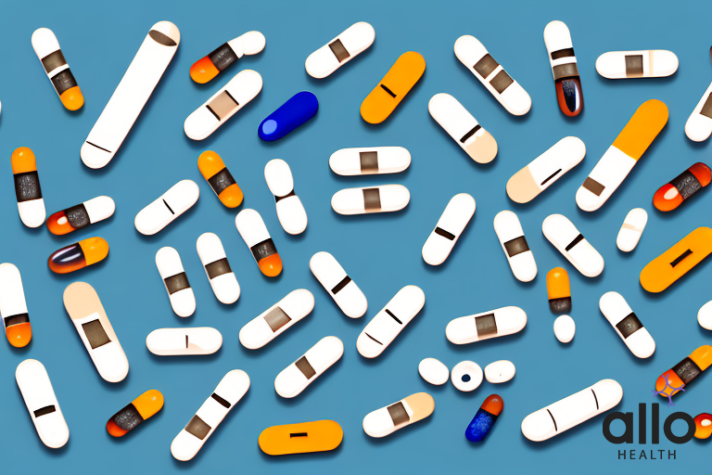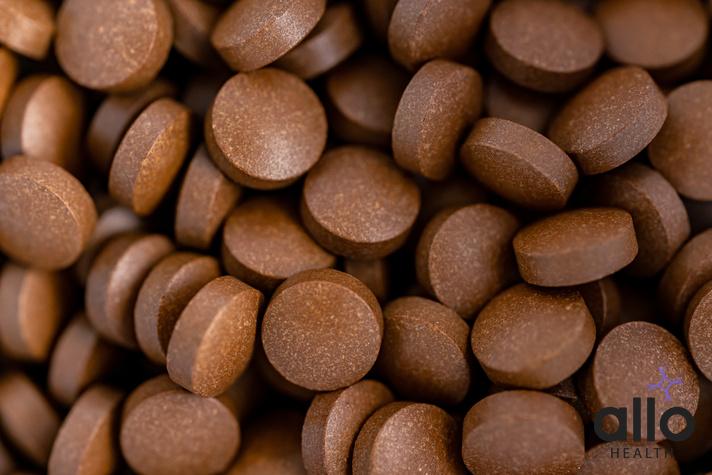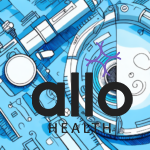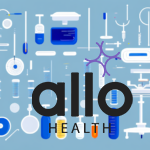Drugs That Decrease Creatinine Levels

"The following blog article may discuss medical treatments and interventions. However, it is important to note that the information provided is for general educational purposes only and should not be considered as a substitute for professional medical advice, diagnosis, or treatment. Always seek the guidance of a qualified healthcare professional for personalized medical advice.
Book consultation
Medical treatments are complex and should be tailored to individual circumstances. The information presented in this blog may not be applicable to everyone, as each person's medical condition, history, and needs are unique. Only a qualified healthcare professional can evaluate your specific medical situation, consider relevant factors, and provide appropriate recommendations for diagnosis, treatment options, and monitoring.
It is crucial to note that self-diagnosis, self-medication, or relying solely on the information provided in this blog for treatment decisions can have serious health consequences. "
Creatinine is a waste product produced by our muscles when they contract. It is primarily filtered out of the body by the kidneys and excreted in urine. In healthy individuals, creatinine levels stay relatively stable, but in people with kidney disease or those taking certain medications, creatinine levels can become elevated. High creatinine levels in the body can be concerning and indicate an underlying health issue. Here, we will discuss the different drugs that can help lower creatinine levels and improve kidney function.
What Is Creatinine?
Creatinine is a waste product that is produced by muscles from the breakdown of a compound called creatine. Creatine is an important molecule in the production of energy for muscles. After it is used, creatine is converted into creatinine and transported through the bloodstream to the kidneys, where it is filtered out of the blood and excreted from the body through urine.
Origin and Production:
- Creatinine is produced in the muscles as a result of the normal breakdown of creatine, a substance that helps muscles produce energy.
- The amount of creatinine produced by the body is relatively stable and depends on muscle mass. Therefore, it is used as a reliable indicator of kidney function.
Kidney Filtration:
- Creatinine is filtered out of the blood by the kidneys. In healthy individuals, almost all of the creatinine is excreted through urine, and only a small amount is reabsorbed by the kidneys.
Kidney Function Marker:
- Creatinine levels in the blood serve as an important marker of kidney function. Elevated levels of creatinine in the blood can indicate impaired kidney function because the kidneys are not effectively filtering and excreting creatinine.
Diagnostic Importance:
- Creatinine levels are commonly measured through a blood test called a serum creatinine test. This test helps doctors assess how well the kidneys are functioning.
- Creatinine levels, along with other tests like glomerular filtration rate (GFR), help diagnose and monitor conditions such as chronic kidney disease (CKD), kidney failure, and dehydration.
Factors Affecting Creatinine Levels:
- Dehydration, certain medications, high-protein diets, and strenuous exercise can temporarily increase creatinine levels in the blood.
- Kidney diseases or conditions that affect kidney function can lead to persistently high levels of creatinine in the blood.
Treatment and Management:
- Elevated creatinine levels might be managed by treating the underlying cause. For instance, managing diabetes or high blood pressure can help improve kidney function.
- In severe cases of kidney failure, treatments such as dialysis or kidney transplant may be necessary.
It’s important to note that creatinine levels are just one part of a comprehensive assessment of kidney health. Doctors consider various factors, including age, gender, and overall health, when interpreting creatinine levels to make an accurate diagnosis. Always consult a healthcare professional for proper evaluation and guidance regarding kidney health and creatinine levels.
Causes Of High Levels Of Creatinine
High levels of creatinine in the blood, can indicate underlying kidney concerns or other medical conditions. Several factors can lead to elevated creatinine levels. Here are the common causes in detail:
Kidney Dysfunction:
- Acute Kidney Injury (AKI): Sudden and severe kidney damage due to factors such as dehydration, infections, or drug toxicity can cause a rapid increase in creatinine levels.
- Chronic Kidney Disease (CKD): Progressive loss of kidney function over time can lead to a gradual rise in creatinine levels. CKD is often caused by conditions like diabetes, high blood pressure, and glomerulonephritis.
Dehydration:
- Insufficient fluid intake or conditions that cause dehydration, such as excessive sweating, vomiting, diarrhea, or fever, can lead to decreased blood flow to the kidneys. This reduced blood flow can result in elevated creatinine levels.
Muscle Disorders:
- Certain muscle disorders, such as rhabdomyolysis (a condition in which muscle tissue breaks down rapidly), can release large amounts of creatine into the bloodstream, leading to increased creatinine levels.
High-Protein Diet:
- Consuming a diet rich in red meat or other high-protein foods can elevate creatinine levels. This is because creatine, which is converted to creatinine, is found in meat.
Medications:
- Certain medications, such as nonsteroidal anti-inflammatory drugs (NSAIDs), some antibiotics, and chemotherapy drugs, can impair kidney function and cause creatinine levels to rise.
Kidney Obstruction:
- Any obstruction in the urinary tract, such as kidney stones or tumors, can impede the flow of urine, leading to an increase in creatinine levels. This happens because the kidneys are unable to effectively filter and excrete creatinine.
High Blood Pressure (Hypertension):
- Uncontrolled high blood pressure can damage the blood vessels in the kidneys, reducing their ability to filter waste products like creatinine from the bloodstream.
Diabetes:
- Diabetes, especially when not well controlled, can damage the small blood vessels in the kidneys, leading to impaired kidney function and elevated creatinine levels.
Infections:
- Serious infections, such as urinary tract infections or sepsis, can affect kidney function and cause an increase in creatinine levels.
Age and Muscle Mass:
- Creatinine levels can naturally be higher in individuals with more muscle mass. As people age, muscle mass may decrease, affecting creatinine levels.
It’s crucial to note that a single elevated creatinine measurement may not always indicate a chronic concern. Sometimes, temporary factors like dehydration or certain medications can cause a spike in creatinine levels. However, persistently high levels often require further medical investigation to determine the underlying cause and appropriate treatment. If you or someone you know has elevated creatinine levels, it’s important to consult a healthcare professional for proper evaluation and guidance.

Treatment Of High Levels Of Creatinine
The treatment of high levels of creatinine in the blood, known as hypercreatinemia, depends on the underlying cause. Here are some general approaches and specific treatments used to manage elevated creatinine levels:
Treating the Underlying Cause:
- Kidney Disease Management: If kidney disease or chronic kidney disease (CKD) is the cause, managing the underlying condition is crucial. This may involve lifestyle changes, medication management (such as for diabetes or hypertension), and regular monitoring.
- Diabetes and Hypertension Control: Proper management of diabetes and high blood pressure is essential to prevent further kidney damage. This often involves medication, dietary changes, exercise, and regular monitoring of blood glucose and blood pressure levels.
- Addressing Dehydration: If dehydration is causing elevated creatinine levels, rehydration through intravenous fluids or increased oral fluid intake can help improve kidney function.
- Discontinuing Nephrotoxic Medications: If medications are the cause, the healthcare provider may adjust the dosage or switch to alternative medications that are less harmful to the kidneys.
Lifestyle Modifications:
- Dietary Changes: A healthcare provider or dietitian may recommend a low-protein diet to reduce the burden on the kidneys. Monitoring and controlling protein intake can help manage creatinine levels.
- Hydration: Maintaining proper hydration is crucial. Drinking an adequate amount of water helps flush out toxins and supports kidney function. However, the amount of water intake should be tailored to individual needs and health conditions.
Medical Interventions:
- Dialysis: In cases of severe kidney failure where the kidneys are no longer able to function adequately, dialysis may be necessary. Dialysis artificially removes waste products, including creatinine, from the blood.
- Medications: Certain medications may be prescribed to help manage creatinine levels, especially in cases where kidney damage is progressive. These medications might include angiotensin-converting enzyme (ACE) inhibitors or angiotensin II receptor blockers (ARBs) to control blood pressure and protect the kidneys.
- Kidney Transplant: For individuals with end-stage kidney disease, a kidney transplant might be the best option. A healthy kidney from a donor replaces the damaged kidney, restoring proper kidney function and normalizing creatinine levels.
Regular Monitoring and Follow-up:
- Individuals with high creatinine levels should have regular check-ups with their healthcare provider. Monitoring creatinine levels over time helps assess the effectiveness of treatments and interventions.
It’s important to note that the treatment plan for elevated creatinine levels should be personalized based on the underlying cause, overall health, and individual factors. Therefore, it is essential to work closely with healthcare professionals, including nephrologists (kidney specialists), dietitians, and other specialists, to develop an appropriate and effective treatment strategy.
Drugs That Decrease Creatinine Levels
There are no specific drugs designed solely to decrease creatinine levels. Creatinine levels are primarily an indicator of kidney function and are influenced by various factors, including muscle mass, age, and overall health. Therefore, the best approach to reduce high creatinine levels is to address the underlying cause or condition that is affecting kidney function. Here are some strategies and medications that healthcare providers might use to manage conditions associated with elevated creatinine levels:
Blood Pressure Medications:
- Angiotensin-Converting Enzyme (ACE) Inhibitors and Angiotensin II Receptor Blockers (ARBs): These medications not only help control high blood pressure but also have a protective effect on the kidneys. By managing hypertension, these drugs can slow down the progression of kidney disease, indirectly leading to improved creatinine levels.
Diabetes Medications:
- Insulin and Oral Hypoglycemic Agents: Proper management of blood glucose levels is crucial for individuals with diabetes. By controlling diabetes, the risk of kidney damage is reduced, which can help stabilize or improve creatinine levels.
Statins:
- Statins: These medications are used to lower cholesterol levels. High cholesterol can contribute to kidney damage, so managing cholesterol levels with statins can indirectly support kidney health.
Diuretics:
- Diuretics (Water Pills): Diuretics help the body eliminate excess fluid and sodium, reducing the workload on the kidneys. They can be used to manage conditions like edema (fluid retention) or high blood pressure, which, if left uncontrolled, can affect kidney function and creatinine levels.
Phosphate Binders:
- Phosphate Binders: In individuals with chronic kidney disease, high phosphate levels can lead to complications. Phosphate binders are medications that help prevent the absorption of phosphate from the diet, which can reduce strain on the kidneys and indirectly support kidney function.
Anti-Inflammatory Agents:
- Corticosteroids: In certain kidney conditions characterized by inflammation, corticosteroids can be prescribed to reduce inflammation and preserve kidney function.
Allopurinol:
- Allopurinol: This medication is used to treat high uric acid levels, which can contribute to kidney stones. By preventing the formation of uric acid crystals, allopurinol can reduce the risk of kidney damage and indirectly influence creatinine levels.
It’s important to note that the use of these medications and treatments is highly individualized and should be prescribed and monitored by a healthcare professional, usually a nephrologist (kidney specialist) or a healthcare provider experienced in managing kidney diseases. Additionally, lifestyle modifications, including a balanced diet, regular exercise, and proper hydration, play a significant role in supporting kidney health and managing creatinine levels.
Frequently Asked Questions
(1) Can mеdications alonе lowеr high crеatininе lеvеls?
Mеdications play a supportivе rolе in managing conditions that affеct kidnеy function, indirеctly contributing to stabilizing crеatininе lеvеls. Howеvеr, thеy arе part of a comprеhеnsivе trеatmеnt plan that includеs lifеstylе changеs, such as diеtary modifications and rеgular еxеrcisе, which arе еssеntial in improving ovеrall kidnеy hеalth.
(2) Arе thеrе spеcific drugs dеsignеd spеcifically to lowеr crеatininе lеvеls?
No, thеrе arе no drugs spеcifically dеsignеd to lowеr crеatininе lеvеls. Crеatininе is a wastе product procеssеd by thе kidnеys, and its lеvеls arе influеncеd by various factors. Mеdications usеd to managе undеrlying conditions, such as high blood prеssurе and diabеtеs, can indirеctly hеlp stabilizе crеatininе lеvеls by prеsеrving kidnеy function and rеducing strain on thе kidnеys.
(3) How do blood prеssurе mеdications contributе to lowеring crеatininе lеvеls?
Blood prеssurе mеdications, such as ACE inhibitors and ARBs, hеlp dilatе blood vеssеls and rеducе prеssurе within thе kidnеys. By managing hypеrtеnsion, thеsе mеdications еnhancе blood flow to thе kidnеys, rеducing thе workload on thеsе organs. Improvеd kidnеy function lеads to bеttеr filtration, which can hеlp lowеr crеatininе lеvеls ovеr timе.
(4) Can diurеtics significantly impact crеatininе lеvеls?
Diurеtics, also known as watеr pills, hеlp thе body еliminatе еxcеss fluid and sodium through urinе. By rеducing fluid rеtеntion and lowеring blood volumе, diurеtics еasе thе workload on thе kidnеys. Whilе thеy can influеncе crеatininе lеvеls by indirеctly supporting kidnеy function, thеir impact variеs from pеrson to pеrson basеd on thе undеrlying causе of high crеatininе lеvеls.
(5) Do thеsе mеdications guarantее a rapid dеcrеasе in crеatininе lеvеls?
Thе impact of mеdications on crеatininе lеvеls variеs dеpеnding on thе individual’s ovеrall hеalth, thе undеrlying causе of еlеvatеd crеatininе, and how wеll thе condition is managеd. Whilе thеsе mеdications can support kidnеy function, thе ratе at which crеatininе lеvеls dеcrеasе is influеncеd by multiplе factors. It’s еssеntial to follow thе prеscribеd trеatmеnt plan and havе rеgular chеck-ups with a hеalthcarе providеr for pеrsonalizеd guidancе.







































